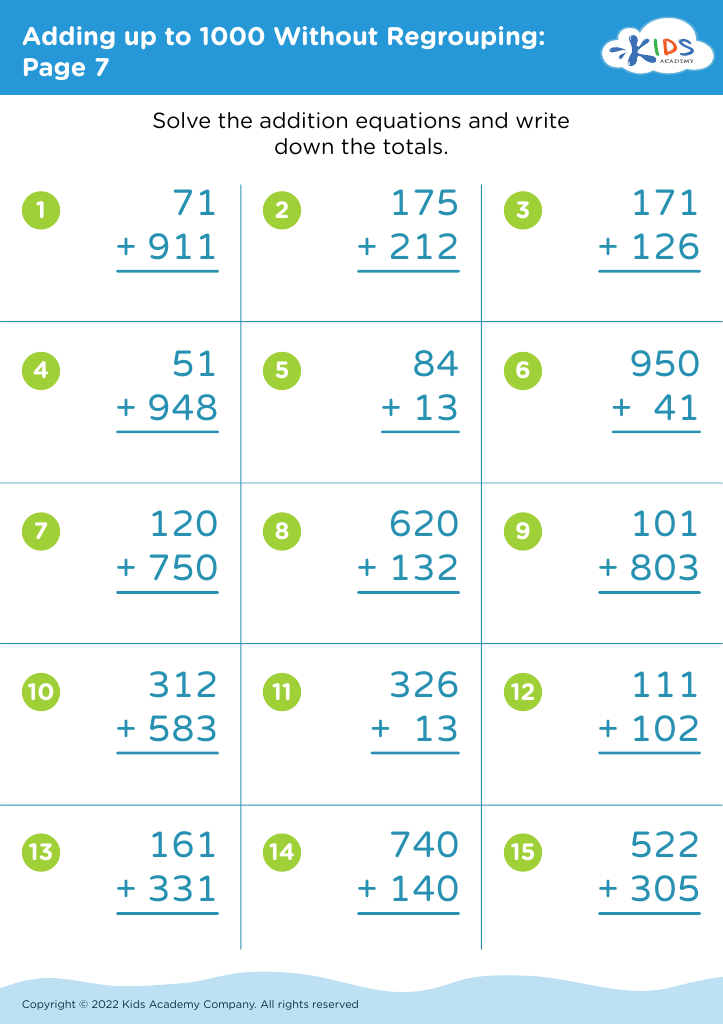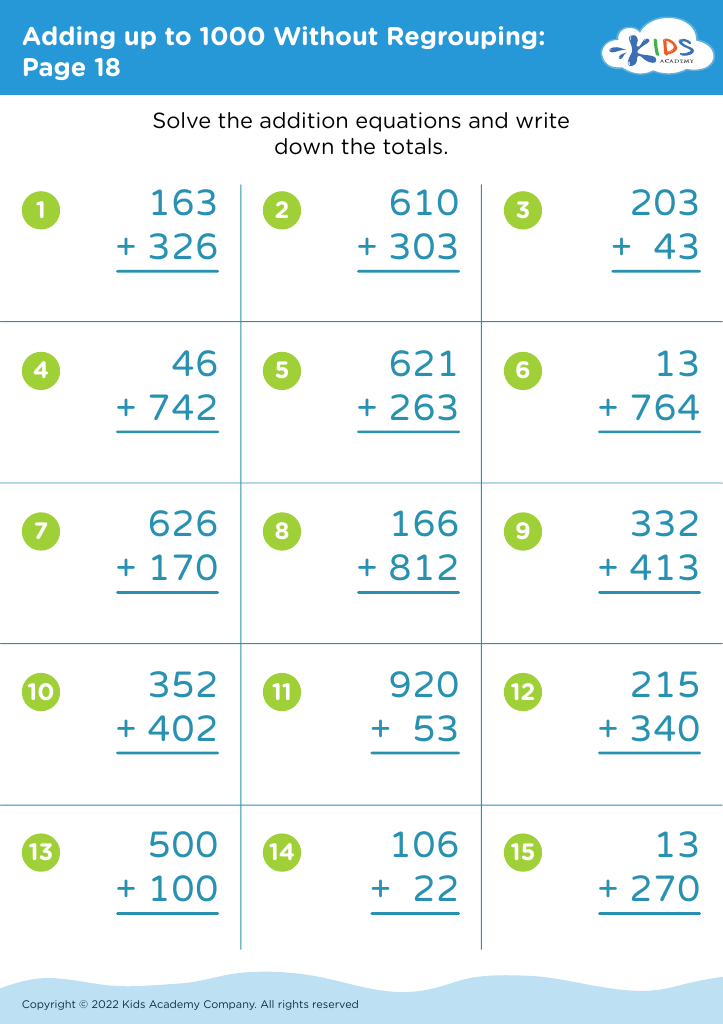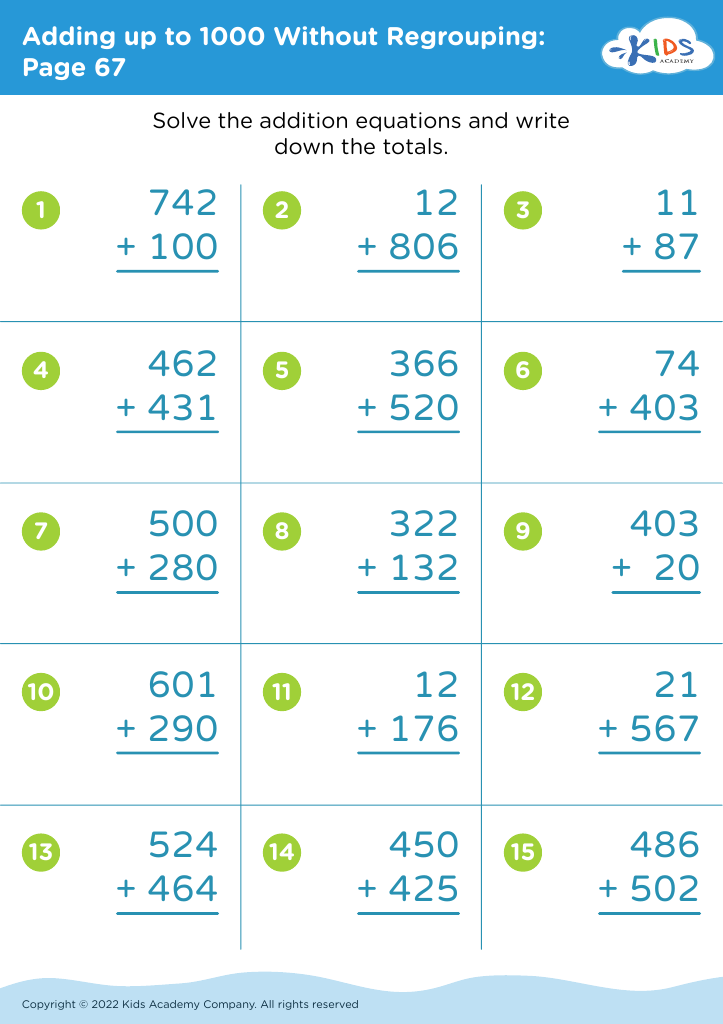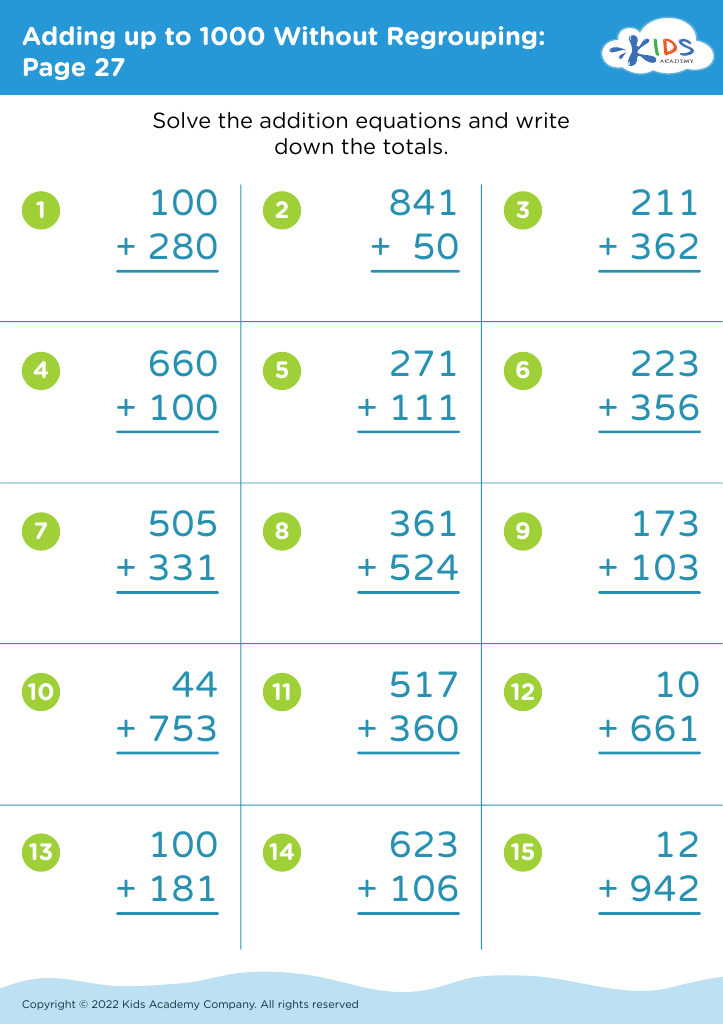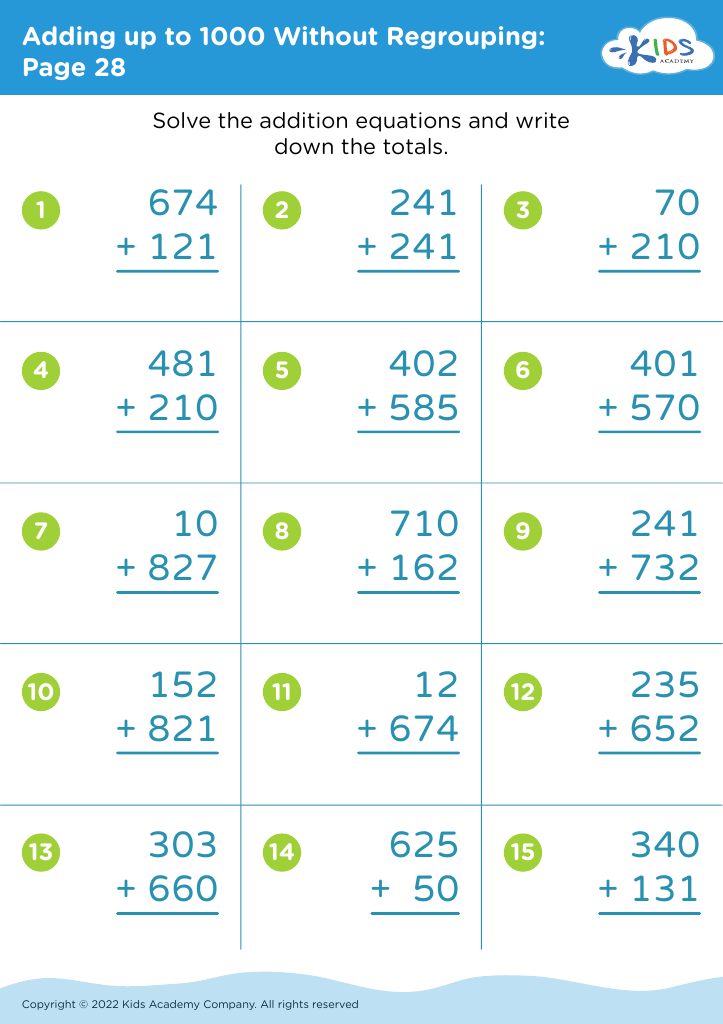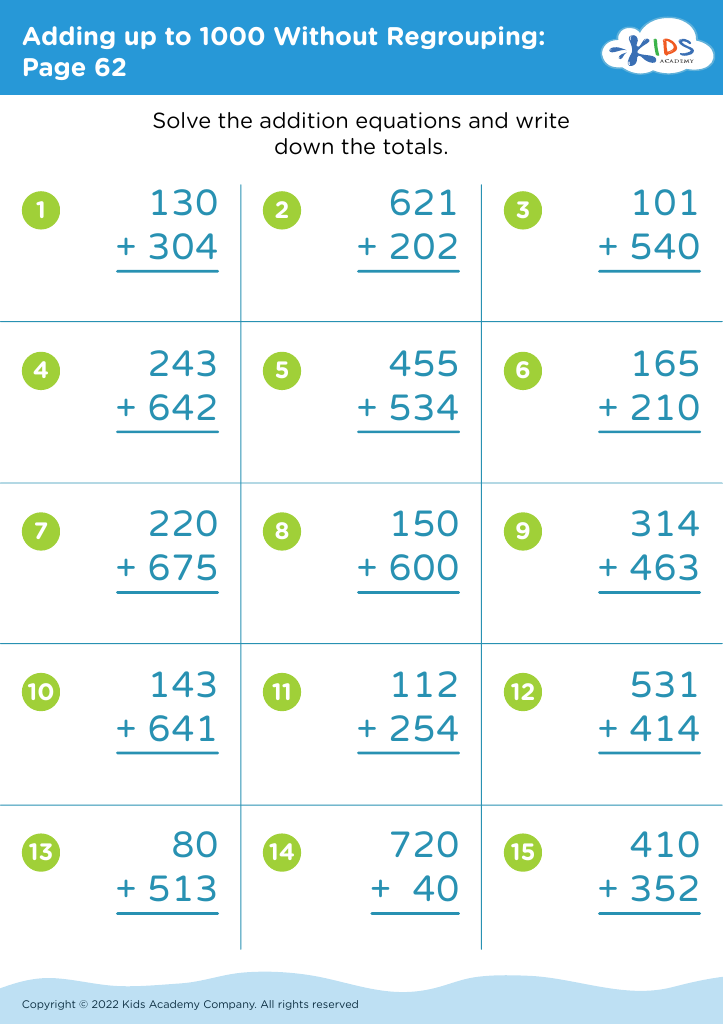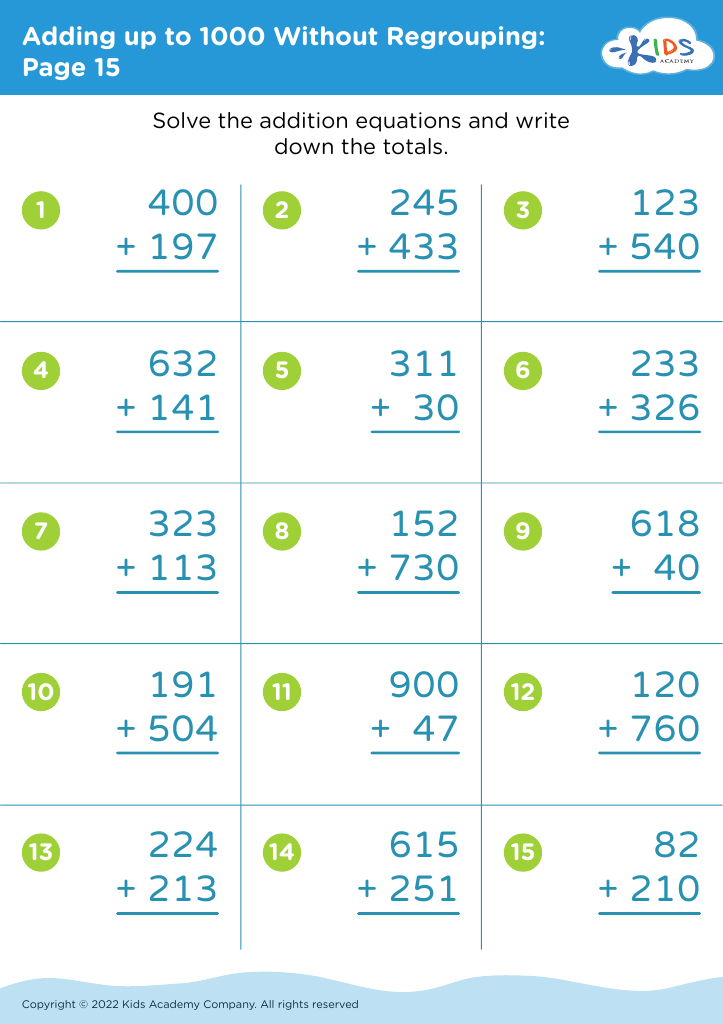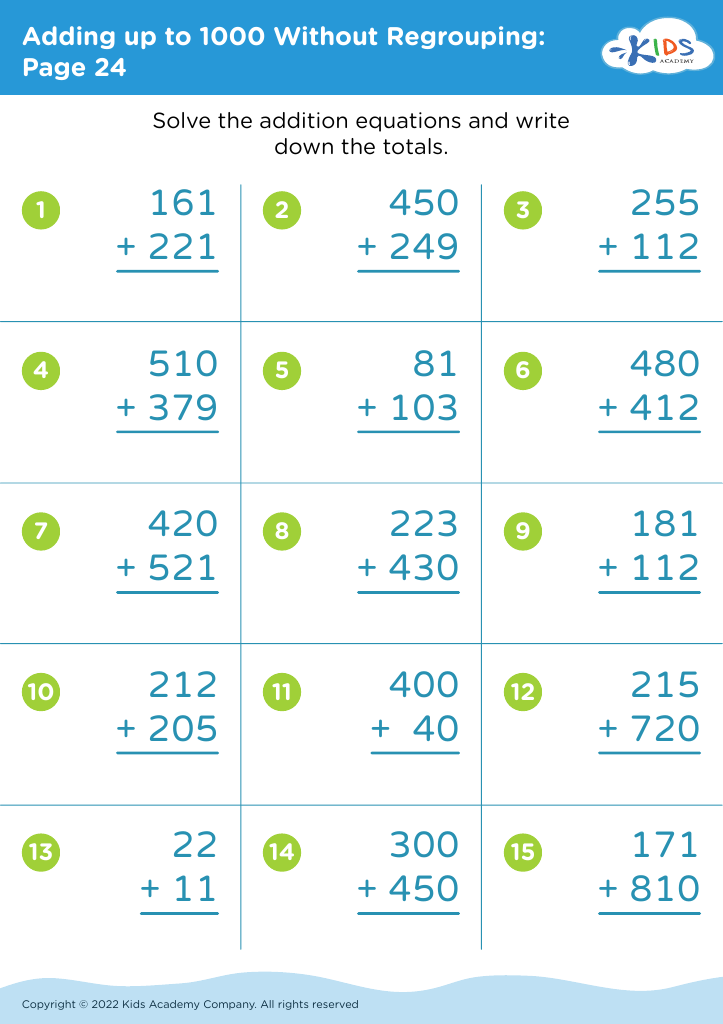Understanding fractions Grade 2 Adding up to 1000 Without Regrouping Worksheets
13 filtered results
-
From - To
Enhance your second grader's math skills with our "Understanding Fractions: Adding Up to 1000 Without Regrouping" worksheets! Tailored for grade 2 students, these engaging resources focus on fraction comprehension while reinforcing addition skills. Your child will explore how to identify, add, and work with fractions in the context of larger numbers, fostering a deeper understanding of mathematical concepts. Each worksheet is designed to provide clear instructions and varied exercises, making learning enjoyable and effective. Perfect for parents and teachers alike, these worksheets aim to support young learners in mastering their math skills while building confidence and a solid foundation for future success.
Understanding fractions is crucial for second graders as it lays the foundation for more advanced mathematical concepts. When children grasp the concept of fractions, they develop critical reasoning and problem-solving skills that are important for their overall academic growth. For parents and teachers, it’s essential to care about this subject because it directly impacts a child's confidence in math and their ability to engage with later, more complex topics.
Additionally, teaching fractions in Grade 2, especially in the context of adding up to 1000 without regrouping, promotes number sense—a fundamental skill that helps students understand relationships between numbers. By learning to compare, add, and subtract fractions, children begin to appreciate the concept of parts to a whole, which is applicable in real-life situations such as cooking or measuring.
Furthermore, second graders are often feeling excited about learning, and providing them with a strong foundation in fractions enriches their experience and encourages a positive attitude towards math. For teachers, facilitating these understandings allows for more effective differentiation, catering to diverse learning needs. Ultimately, encouraging a solid grasp on fractions paves the way for lifelong mathematical success, making it a priority for parents and educators alike.

